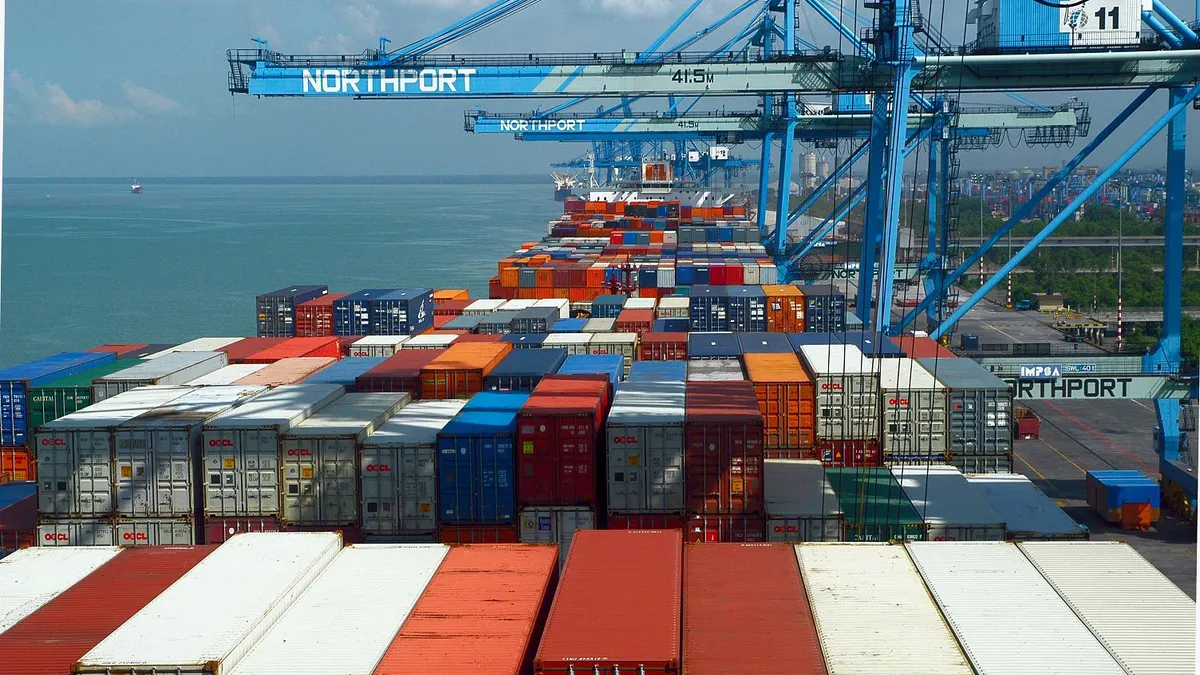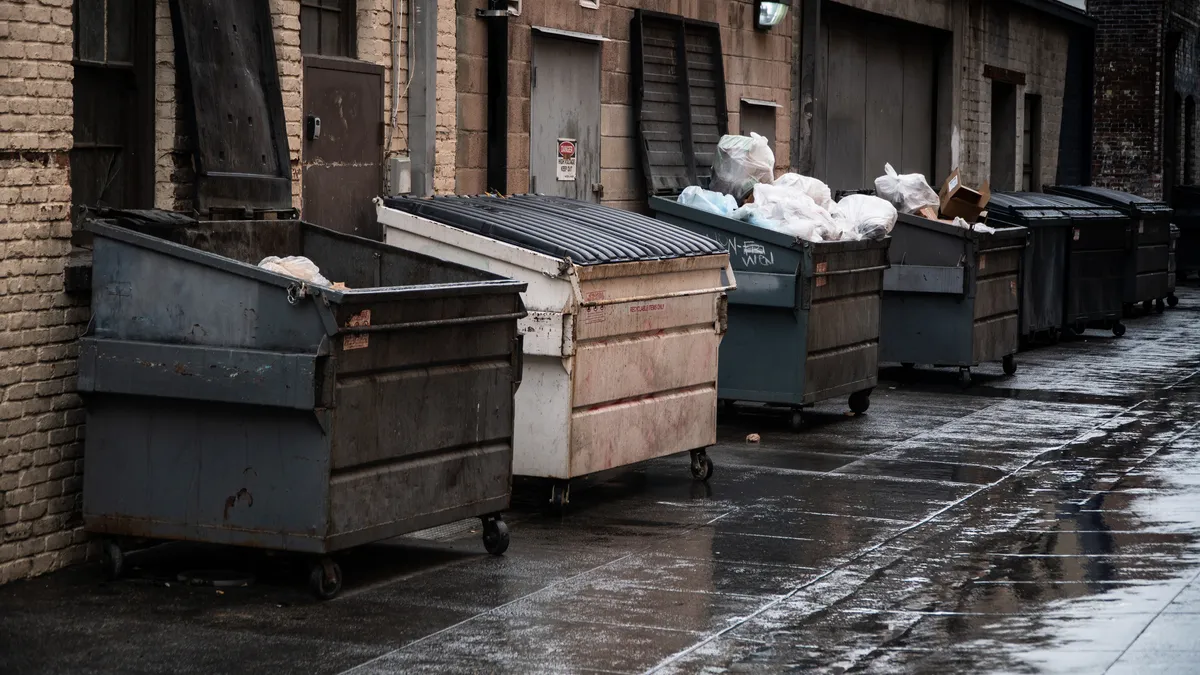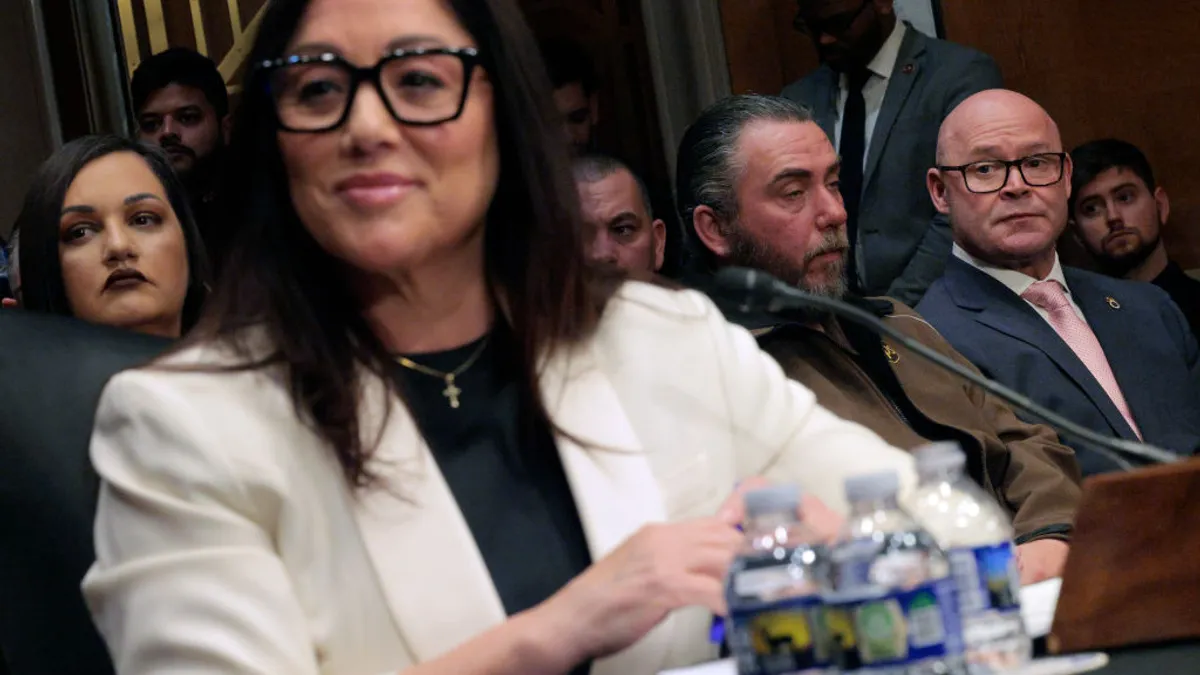Welcome to Scrap Collector, Waste Dive's Friday round-up of insights and stories you may have missed during the week.
SECRETS OF THE (PLASTIC SCRAP) TRADE
In the wake of the China ban, Malaysia became the world's largest importer of plastic scrap — and the environmental, social and public health strain engendered by a flood of waste provoked sharp condemnation from Malaysian environment minister Yeo Bee Yin.
"At the height of my anger, I wanted to send it back to the country of origin," she told National Geographic last year. "What I realized is there is no tracking. There is a gap between what the citizens know about their waste and what actually happens to their waste."
The country quickly imposed a National Sword-esque ban on further foreign imports — but, as reported by The Malaysian Reserve, those restrictions haven't been enough to stop plastic scrap traders. While plastic scrap shipments to Malaysia must bear the identifier 3915 under the Harmonized System (HS) Code, a recent government investigation reveals that exporters have instead been falsely declaring containers under HS code 3920 — a label reserved for plastic products (plates, sheets, film, foil and strip) exempt from import regulations.
The results of this investigation, according to Resource Recycling, may help explain some strange post-ban export trends. Decreased 3915-coded shipments from the U.S. to Malaysia have been accompanied by record volumes of shipments coded 3920: in December 2018, approximately one month after Malaysia announced its restrictions, 3920-labeled exports rose from an average of 1.2 million pounds per month in the previous year to 7.5 million pounds, followed by 5.6 million pounds in January and 4.4 million pounds in February.
"According to our reports, more than 100 containers in Westports, Port Klang, alone hold contaminated and suspicious plastic materials which have not been checked, and they are being wrongly declared as non-waste," Yeo told reporters earlier this week. "Among the countries that have been exporting these materials are the UK, U.S., Australia, Germany and Spain."
"We will respond through the Basel Convention, as there is an article stated that exporters are obliged to return the materials to the origin countries," she added.
A more detailed investigation into the sources of illegal plastic exports is yet to come, said Yeo. In the meantime, all mislabeled containers containing plastic scrap have been grounded at local ports, where they will undergo full inspection before being shipped back to their countries of origin.
IN OTHER NEWS...
DSNY rocked by cheating scandal — The Chief-Leader
"High school never ends," Bowling for Soup observed sagely in 2006 — a lesson made abundantly clear to New York's Department of Sanitation (DSNY) earlier this month. The agency has been forced to scrap the results of its recent supervisor's exam after a file containing 121 multiple-choice questions and answers was found circulating on Facebook. It's a blow to teachers and rule-abiders everywhere — but especially to the 2,349 DSNY workers hoping for a supervisor promotion, who will now have to sit through the test again. And just when the weather was getting good.
"The City of New York has zero tolerance for misconduct," New York's Department of Citywide Administrative Services said in a statement. "Any allegation of wrongdoing is and will be thoroughly investigated to ensure the integrity of the testing process."
AROUND THE WORLD
Philippines' Duterte threatens war with Canada over waste standoff — CNN Philippines
Philippines President Rodrigo Duterte has been accused of many things, but subtlety isn't one of them.
"Let's fight Canada," he said Tuesday during a situation briefing. "We'll declare war against them, we can handle them anyway."
The source of Duterte's ire? A total of 103 containers of hazardous Canadian waste shipped illegally to the Philippines in 2013 — 77 of which are still languishing on Filipino docks.
"Local customs officials and environmental activists have expressed concern over the unsorted wastes containing toxic chemical additives and metals from the mixed plastics and e-waste," Joe DiGangi, a science and technical adviser at IPEN, told South China Morning Post in February. "There is also the issue of microbial contamination from decaying soiled diapers and household trash."
Canada, however, has repeatedly refused to heed the Philippines's calls for repatriation of the decaying waste shipments — and the resulting five-year standoff has strained the patience of community members, activists and, evidently, Duterte himself.
"I want a boat prepared," the president said Tuesday. "I'll give a warning to Canada maybe next week that they better pull that thing out, or I will set sail doon sa Canada, ibuhos ko ýung basura nila doon [I will dump their trash there]. I cannot understand why they are making us a dump site."
We'll keep you posted on whether this warning finally prompts Prime Minister Justin Trudeau to make good on his 2017 promise to find "a Canadian solution" to the impasse — or whether, in some sort of bizarre twist concocted by over-caffeinated college Model UN delegates, the Philippines actually ends up declaring war on Canada. Only in 2019, eh?
SEEN & HEARD
Reporting like this actually makes the #ewaste problem worse. A thread.
— Reassembling Rubbish (@rubbishmaker) April 24, 2019
Rotten eggs: e-waste from Europe poisons Ghana's food chain https://t.co/sBD3wiVIX0 @guardian pic.twitter.com/Vh3tOtz9iE
There’s a first date going on this bar, and they’re talking about Roosevelt Island, and the guy keeps not bringing up the pneumatic trash collection system. Totally blowing it, dude.
— Sam Biederman (@Biedersam) April 26, 2019
60 year ocean plastics data set. https://t.co/2IXaUlDL1r pic.twitter.com/JB6CNYea9T
— Adam Minter (@AdamMinter) April 19, 2019
Loving this waste and cleansing department inspired street art. #Brussel #Bruxelles #chasinggarbage #thefightforcleanstreets pic.twitter.com/w76EAy6qA7
— The Municipal Oracle (@MunicipalOracle) April 19, 2019






















